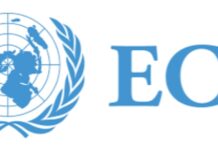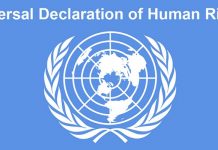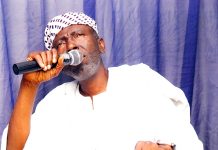
EFCC arraigns Godwin Emefiele for alleged $4.5 billion, N2.8 billion fraud
The Lagos Zonal Command of the Economic and Financial Crimes Commission, EFCC, on Monday arraigned a former Governor of the Central Bank of Nigeria, Godwin Emefiele, before Justice R.A. Oshodi of the Special Offences Court sitting in Ikeja, Lagos for an alleged $4.5bn and N2.8bn fraud.
Emefiele was arraigned alongside one Henry Omoile on an amended 26-count charge. The former CBN Governor was specifically mentioned in counts one to four as well as counts eight to 26 bordering on alleged abuse of office, contrary and punishable under Section 73 of the Criminal Law of Lagos 2011; accepting gratification, contrary and punishable under Section 8 of the Corrupt Practices and Other Related Offences Act 2000; corrupt demand, contrary and punishable under Section 10 of the Corrupt Practices and Other Related Offences Act 2000; receiving property fraudulently obtained, contrary to and punishable under Section 328 of the Criminal Law of Lagos 2011; and conferring corrupt advantage, contrary to Section 19 of the Corrupt Practices and Other Related Offences Act 2000.
Omoile was mentioned in counts five, six and seven bordering on acceptance of gifts by agents, contrary to Section 65 of the Criminal Law of Lagos State 2015.
Count one: “That you, Godwin Ifeanyi Emefiele, between 2022 and 2023 in Lagos, within the jurisdiction of this Honourable court, directed to be done in abuse of the authority of your office as the Governor, Central Bank of Nigeria, an arbitrary act, to wit: allocating foreign exchange in the aggregate sum of $2,136,391,737.33 without bids, which act is prejudicial to the rights of Nigerians.”
Count two: “That you, Godwin Ifeanyi Emefiele, between 2020 and 2021 in Lagos, within the jurisdiction of this Honourable court, directed to be done in abuse of the authority of your office as the Governor, Central Bank of Nigeria, an arbitrary act, to wit: allocating foreign exchange in the aggregate sum of $291,945,785.59 without bids, which act is prejudicial to the rights of Nigerians.”



































